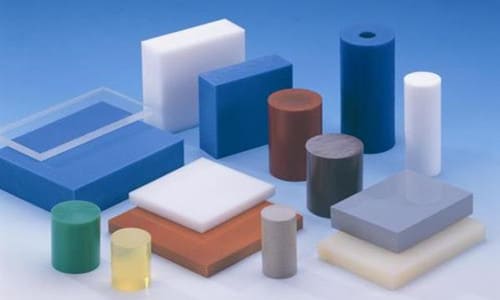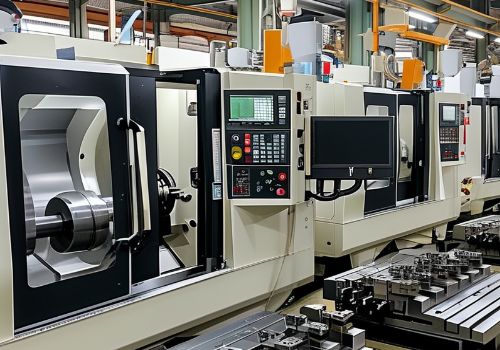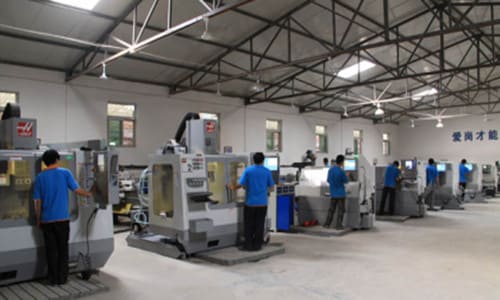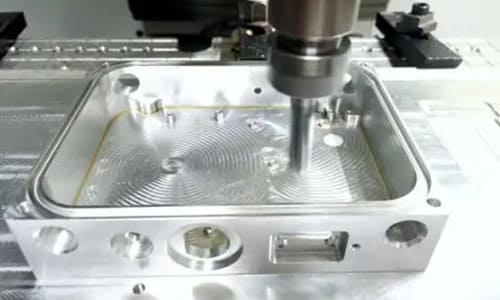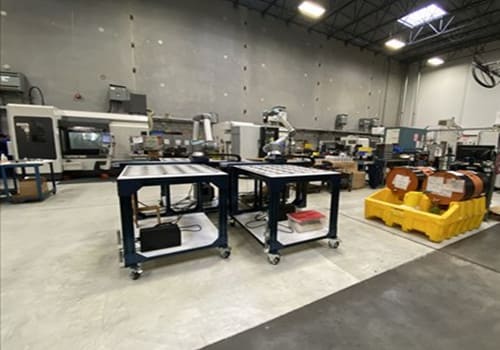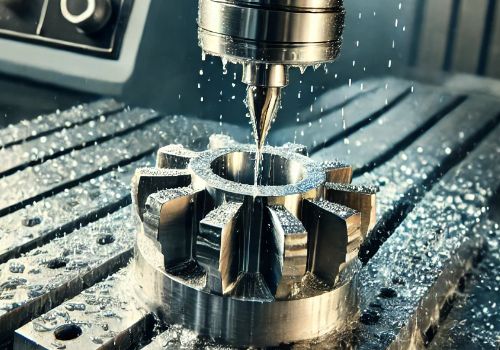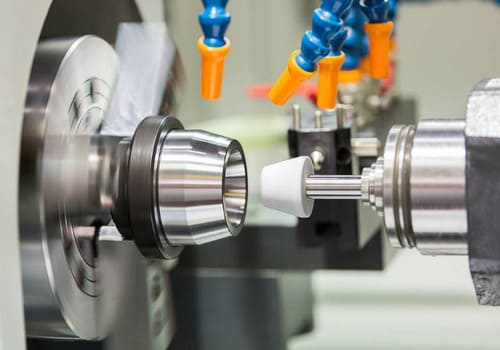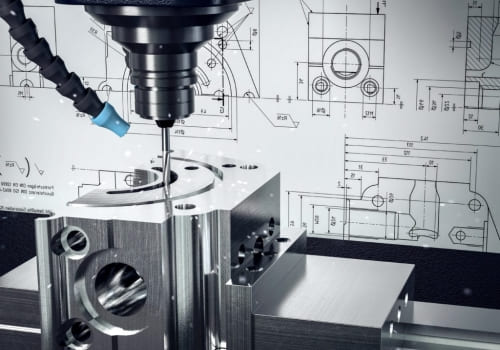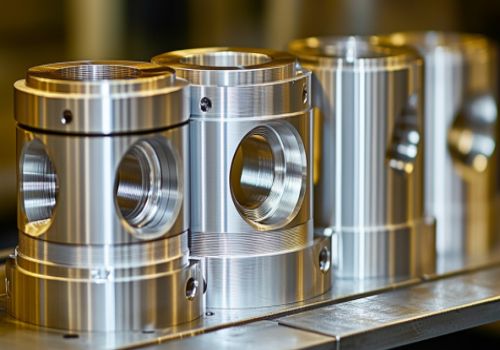In the mechanical parts processing industry, plastics are often used as raw materials for further processing. There are many types of plastics on the market. So what kind of plastics should be selected when processing mechanical parts?
Let’s have a look at the manufacturing process and characteristics of different plastics.
1. ABS
ABS parts manufacturing process:
CNC processing / Rapid prototype / injection molding / 3D printing
ABS material characteristics and application:
ABS is one of the five major synthetic resins. It has excellent impact resistance, heat resistance, low temperature resistance, chemical resistance and electrical properties. It also has the characteristics of easy processing, stable product dimensions, and good surface gloss. It is easy to paint, coloring, it can also carry out secondary processing such as surface metal spraying, electroplating, welding, hot pressing and bonding. It is widely used in machinery, automobiles, electronic appliances, instrumentation, textiles and construction and other industrial fields. It is a kind of extremely versatile thermoplastic engineering plastics. ABS is usually a light yellow or milky white granular amorphous resin. ABS is one of the most widely used engineering plastics.
2. Nylon
Nylon manufacturing process:
CNC processing / Rapid prototype / injection molding / 3D printing
Characteristics and application of Nylon:
Nylon has different types, such as PA6, PA66 and PA12, etc. The material has the most superior comprehensive properties, including mechanical strength, stiffness, toughness, mechanical shock absorption and wear resistance. These characteristics, coupled with good electrical insulation and chemical resistance, make nylon a “universal grade” material for the manufacture of mechanical structural parts and maintainable parts.
3. PVC
PVC manufacturing process:
CNC processing / Rapid prototype / injection molding
PVC characteristics and applications:
Polyvinyl chloride, abbreviated as PVC, is a polymer formed by the polymerization of vinyl chloride monomers according to a free radical polymerization reaction mechanism. PVC used to be the world’s largest production of general-purpose plastics, and it is widely used. It is widely used in construction materials, industrial products, daily necessities, floor leather, pipes, wires and cables, and sealing materials.
4. POM
POM manufacturing process:
CNC processing / Rapid prototype / injection molding
POM characteristics and applications:
POM is a tough and elastic material that has good creep resistance, geometric stability and impact resistance even at low temperatures. The high degree of crystallinity of POM leads to a very high shrinkage rate, which can be as high as 2% to 3.5%. There are different shrinkage rates for a variety of different reinforced materials. POM has a very low coefficient of friction and good geometric stability, especially suitable for making gears and bearings. Because it also has high temperature resistance, it is also used in the processing of piping devices (valves, pump housings), lawn equipment, audio equipment, household appliances, automotive parts, and precision parts such as cameras and clocks.
5. Plexiglass acrylic
Acrylic manufacturing process:
CNC processing / Rapid prototype / injection molding
Acrylic characteristics and applications:
Plexiglass is a popular name, abbreviated as PMMA, which is an important thermoplastic that was developed earlier. Plexiglass is divided into four types: colorless and transparent, colored and transparent, pearlescent, and embossed plexiglass. Plexiglass is commonly known as acrylic. Plexiglass has good transparency, chemical stability, mechanical properties, weather resistance, easy dyeing, easy processing, and beautiful appearance. This material is widely used in the production of advertising light boxes, nameplates, etc.
6. PC
PC manufacturing process:
CNC processing / Rapid prototype / injection molding
PC features and applications:
Polycarbonate (PC for short) is a high molecular weight polymer containing carbonate groups in the molecular chain. According to the structure of the ester group, it can be divided into aliphatic, aromatic, aliphatic-aromatic and other types. Among them, the lower mechanical properties of aliphatic and aliphatic-aromatic polycarbonates limit their application in engineering plastics. The three major application areas of PC engineering plastics are glass assembly industry, automobile industry and electronics and electrical appliances industry, followed by industrial machinery parts, optical discs, packaging, computers and other office equipment.
7. PP
PP manufacturing process:
CNC processing / Rapid prototype / injection molding
PP characteristics and applications:
Polypropylene is a thermoplastic resin made by the polymerization of propylene. The relative density is small, only 0.89-0.91, which is one of the lightest varieties in plastics. Due to the high crystallinity, the surface rigidity and scratch resistance of this material are very good. PP does not have the problem of environmental stress cracking.
8. PEEK
PEEK manufacturing process:
CNC machining / Rapid prototype
PEEK characteristics and applications:
PEEK is a special engineering plastic with excellent performance. Compared with other special engineering plastics, PEEK has more significant advantages. It has a positive high temperature resistance of 260 degrees, excellent mechanical properties, good self-lubrication, chemical resistance, flame retardancy, and peeling resistance. , wear resistance, super mechanical properties can be used in high-end machinery, nuclear engineering and aviation technology.
9. Teflon PTFE
Teflon manufacturing process:
CNC machining /Rapid prototype
Teflon characteristics and applications:
Polytetrafluoroethylene, the English abbreviation is PTFE, and the brand name is Teflon. Products of this material are generally collectively referred to as “non-stick coating”; it is a synthetic polymer material that uses fluorine to replace all hydrogen atoms in polyethylene. This material is resistant to acids, alkalis, and various organic solvents, and it is almost insoluble in all solvents. At the same time, PTFE has the characteristics of high temperature resistance, and its friction coefficient is very low, so it can be used as a way of lubrication, and it has become an ideal coating for non-stick pots and water pipes.
The above are the types of plastics commonly used when processing mechanical parts. Have you seen other commonly used plastic materials?
As a professional CNC machining manufacturer, DO Machining not only produce metal parts, but plastic and wood parts are also available.
Please visit our CAPABILITIES and what PRODUCTS we did.
CNC machining service is the core business of DO Machining, from protptyes to bulk production, our professional 3/4/5 aixs CNC machining centers, CNC turning equipments, CNC turning-milling equipments, CNC grinding machines etc., are operated by well trained manufacturing engineers to meet the demands from global 1000+ customers in 30+ industries.
CNC Machining can be done starting with blanks produced from standard bar stock or one of DO Machining other manufacturing processes.
Contact us to see how we can provide overall value to your CNC machining needs.

